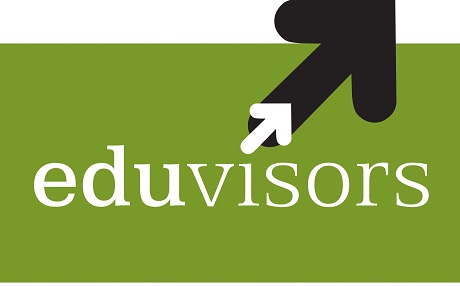Changing Face of The Traditional Schooling Model
- June 23, 2020
- Posted by: Eduvisors
- Category: Blogs

Schooling, as we know it, is defined by buildings, classrooms, books and schedules. Traditional schooling has been considered as the only way to a balanced education; until now. The year 2020, as dreadful as it may seem, has brought with it a new reckoning for the prevalent model of schooling across the world. As schools lie helpless in the wake of the pandemic, a closer look reveals the unpreparedness and loopholes of the system as a whole. COVID-19 has not only exposed the cracks but has also brought to light the need for re-evaluation and assessment of the effectiveness of the prevalent schooling model.
Why do things need to change?
Several researchers and experts have been strong critiques of the traditional schooling model. The archaic vision of schools coupled with dated teaching techniques has lead to their loss of faith in the system. In fact, some even claim that the present schooling model is being approached as more of a business and not as social responsibility. Individuals behind schools no longer take pride in the noble cause of empowering young minds and contributing to the intellectual capital of the nation. Even teachers are now of the ‘job driven’ mindset and are not interested in imparting education which could largely be attributed to the socio-economic scenario in the country.
Looking at the sector as a whole, almost every educational institution has been adversely affected. However, the colossal turn of events has also brought about a renewed mindset and refreshed thinking to the table. The trends and analysis clearly indicate a new dawn for schooling in India and the world. A new model is emerging – one that is more innovative, forward looking and future proof. The industry seems to be leaning heavily towards online modes of teaching and learning. More and more schools are becoming highly accepting of technology as an enabler in such perilous times. Thanks to concepts such as Artificial Intelligence, Machine Learning, IoT, innovators are designing better and more efficient ways of learning every single day. The face of the educational framework is certainly positioned for a radical change in the next few years.
Specifically speaking, EdTech firms in the country have reported upto 60% increase in user base in a month which is a testament to the changing mindset amongst all stakeholders in the schooling process. Schools have also invested heavily in their IT framework and have also strategized to move their curriculum online. Teachers are being trained and refined to embrace technology as an ally. Students have come forward and shown a keen interest in learning online and attending live lessons. Parents have also become more accepting of the idea of e-learning and encourage their children to choose digital learning.
For the first time ever, concepts like digital literacy are being explored. The American Library Association (ALA) defines digital literacy as “the ability to use information and communication technologies to find, evaluate, create, and communicate information, requiring both cognitive and technical skills”. Students and teachers around the world are increasingly becoming digitally literate. In India, the government has also mobilized significant capital towards digital literacy missions such as DIKSHA – the government’s online learning portal which has registered over 61 crore views since March 2020. This accelerated adoption of technology has given a renewed outlook to the face of schooling and education as a whole.
Another interesting concept being heavily talked about is the idea of ‘Online Schooling’; not to be confused with ‘Homeschooling’. While online schooling is a way of offering state sponsored curricula to students and families, homeschooling relates primarily to the purchase of curriculum to be in turn taught by the parents. Online schooling presents immense opportunities for both students and teachers to assume greater control and also assigns parental responsibility to help the child stay on his/her learning path.
What is Online Schooling?
Online schooling is a branch of the EdTech industry which is defined by a heavy reliance on technology and innovativeness. Students are exposed to a blended model including both online and offline ways of learning. Teachers are expected to teach in both synchronous and asynchronous teaching formats. Parent’s shoulder responsibility with the school and act as learning coaches to steer their child’s progress in the right direction. All in all, it is an inclusive form of schooling and shows great promise for the future.
As the schooling model slowly gravitates towards a tech enabled, student centric sector, it is also important for schools to look into stakeholder education aspects. Significant efforts have to be made in the direction of reaching out to technologically averse sets of parents and exposing them to the many benefits of online schooling such as personalization, individual attention, analysis and monitoring etc. The traditional model of schooling will continue to interfere with the natural progression of the industry as long as there are people that choose to believe in its effectiveness. While the traditional model has its merits, it has now become counter intuitive to the idea of education. It is time for schools to act now if they wish to ride the wave of technology enabled schooling in the days to come.
Do you have questions about how Eduvisors can help ? Send us an email and we’ll get in touch shortly.
